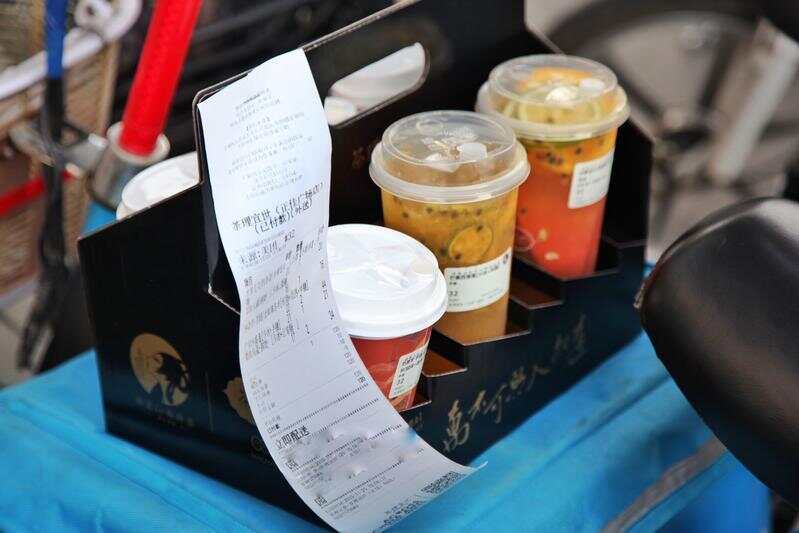 自今年4月以来,Takeaway的主要平台发起了激烈的“补贴战争”,订单量反复损坏了这些票据。乍一看,买家伸出援手,交易者出售更多的商品,这在两个世界上似乎都是最好的商品。但是,许多企业报告说,商店的生活更加困难。湖北一家主要商务区的一家茶店以19.4元的外卖订单为例。扣除不同成本后,预订的收入与成本非常相似。一家广州餐厅在6月收到了4,158个外卖订单,营业额为162,215.8元。但是,在减少了交易者的补贴,平台佣金,送货服务费,租金,制造,水,电力,汽油,食物,ATBP之后,收入为-10,340.47 yuan。一家早餐餐厅平均每天有近1,000个外卖订单,但收入也很低甚至没有收入。老板说:“原始商店的收入可能是一千元人民币进行传统餐饮时。但是现在没有办法。 If you are not doing it, others will remove all your business." The reporter's investigation found that the preference mechanism generated by the Takeout Platform jointly carries the platform and merchant. Some orders are superimposed due to activities, and the cost even exceeds the income, and traders remove shipments. Despite this, in order to maintain platform exposure, most traders still need to participate in the subsidy policies of each platform. Experts say the essence of the takeaway war is a Laror以“为市场燃烧的钱”为特征的首都“内在”,如果平台通过提高佣金和降低价格来将运营成本传递给商人和骑手,那么它将不仅会为不良的行业竞争,而且还可以使质量的价值变化。D“服务”。只有通过联合建筑,共享,标准和有序的生态平台,我们才能在中国和数字经济行业的发展中注入真正可持续的增长势头。
编辑:那是Zhechuan
自今年4月以来,Takeaway的主要平台发起了激烈的“补贴战争”,订单量反复损坏了这些票据。乍一看,买家伸出援手,交易者出售更多的商品,这在两个世界上似乎都是最好的商品。但是,许多企业报告说,商店的生活更加困难。湖北一家主要商务区的一家茶店以19.4元的外卖订单为例。扣除不同成本后,预订的收入与成本非常相似。一家广州餐厅在6月收到了4,158个外卖订单,营业额为162,215.8元。但是,在减少了交易者的补贴,平台佣金,送货服务费,租金,制造,水,电力,汽油,食物,ATBP之后,收入为-10,340.47 yuan。一家早餐餐厅平均每天有近1,000个外卖订单,但收入也很低甚至没有收入。老板说:“原始商店的收入可能是一千元人民币进行传统餐饮时。但是现在没有办法。 If you are not doing it, others will remove all your business." The reporter's investigation found that the preference mechanism generated by the Takeout Platform jointly carries the platform and merchant. Some orders are superimposed due to activities, and the cost even exceeds the income, and traders remove shipments. Despite this, in order to maintain platform exposure, most traders still need to participate in the subsidy policies of each platform. Experts say the essence of the takeaway war is a Laror以“为市场燃烧的钱”为特征的首都“内在”,如果平台通过提高佣金和降低价格来将运营成本传递给商人和骑手,那么它将不仅会为不良的行业竞争,而且还可以使质量的价值变化。D“服务”。只有通过联合建筑,共享,标准和有序的生态平台,我们才能在中国和数字经济行业的发展中注入真正可持续的增长势头。
编辑:那是Zhechuan
 自今年4月以来,Takeaway的主要平台发起了激烈的“补贴战争”,订单量反复损坏了这些票据。乍一看,买家伸出援手,交易者出售更多的商品,这在两个世界上似乎都是最好的商品。但是,许多企业报告说,商店的生活更加困难。湖北一家主要商务区的一家茶店以19.4元的外卖订单为例。扣除不同成本后,预订的收入与成本非常相似。一家广州餐厅在6月收到了4,158个外卖订单,营业额为162,215.8元。但是,在减少了交易者的补贴,平台佣金,送货服务费,租金,制造,水,电力,汽油,食物,ATBP之后,收入为-10,340.47 yuan。一家早餐餐厅平均每天有近1,000个外卖订单,但收入也很低甚至没有收入。老板说:“原始商店的收入可能是一千元人民币进行传统餐饮时。但是现在没有办法。 If you are not doing it, others will remove all your business." The reporter's investigation found that the preference mechanism generated by the Takeout Platform jointly carries the platform and merchant. Some orders are superimposed due to activities, and the cost even exceeds the income, and traders remove shipments. Despite this, in order to maintain platform exposure, most traders still need to participate in the subsidy policies of each platform. Experts say the essence of the takeaway war is a Laror以“为市场燃烧的钱”为特征的首都“内在”,如果平台通过提高佣金和降低价格来将运营成本传递给商人和骑手,那么它将不仅会为不良的行业竞争,而且还可以使质量的价值变化。D“服务”。只有通过联合建筑,共享,标准和有序的生态平台,我们才能在中国和数字经济行业的发展中注入真正可持续的增长势头。
编辑:那是Zhechuan
自今年4月以来,Takeaway的主要平台发起了激烈的“补贴战争”,订单量反复损坏了这些票据。乍一看,买家伸出援手,交易者出售更多的商品,这在两个世界上似乎都是最好的商品。但是,许多企业报告说,商店的生活更加困难。湖北一家主要商务区的一家茶店以19.4元的外卖订单为例。扣除不同成本后,预订的收入与成本非常相似。一家广州餐厅在6月收到了4,158个外卖订单,营业额为162,215.8元。但是,在减少了交易者的补贴,平台佣金,送货服务费,租金,制造,水,电力,汽油,食物,ATBP之后,收入为-10,340.47 yuan。一家早餐餐厅平均每天有近1,000个外卖订单,但收入也很低甚至没有收入。老板说:“原始商店的收入可能是一千元人民币进行传统餐饮时。但是现在没有办法。 If you are not doing it, others will remove all your business." The reporter's investigation found that the preference mechanism generated by the Takeout Platform jointly carries the platform and merchant. Some orders are superimposed due to activities, and the cost even exceeds the income, and traders remove shipments. Despite this, in order to maintain platform exposure, most traders still need to participate in the subsidy policies of each platform. Experts say the essence of the takeaway war is a Laror以“为市场燃烧的钱”为特征的首都“内在”,如果平台通过提高佣金和降低价格来将运营成本传递给商人和骑手,那么它将不仅会为不良的行业竞争,而且还可以使质量的价值变化。D“服务”。只有通过联合建筑,共享,标准和有序的生态平台,我们才能在中国和数字经济行业的发展中注入真正可持续的增长势头。
编辑:那是Zhechuan
